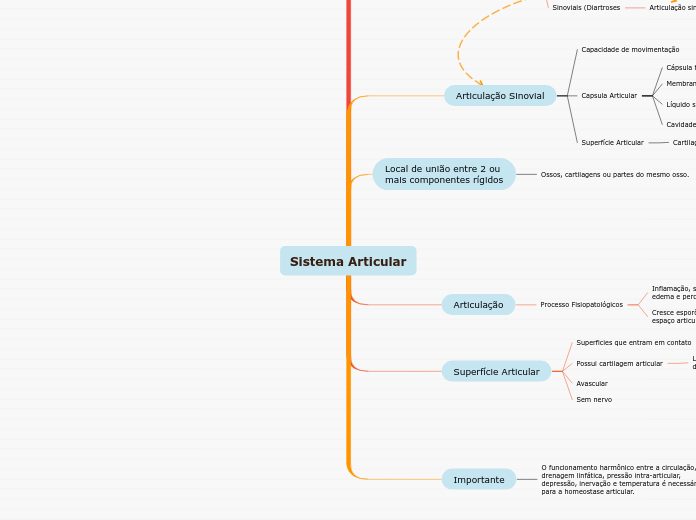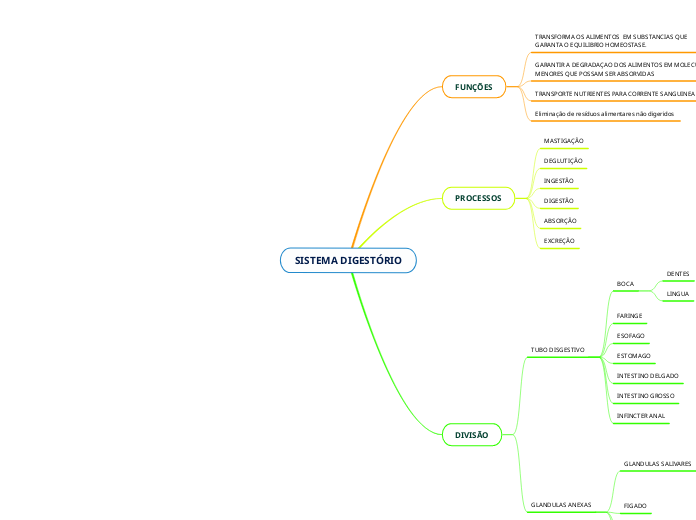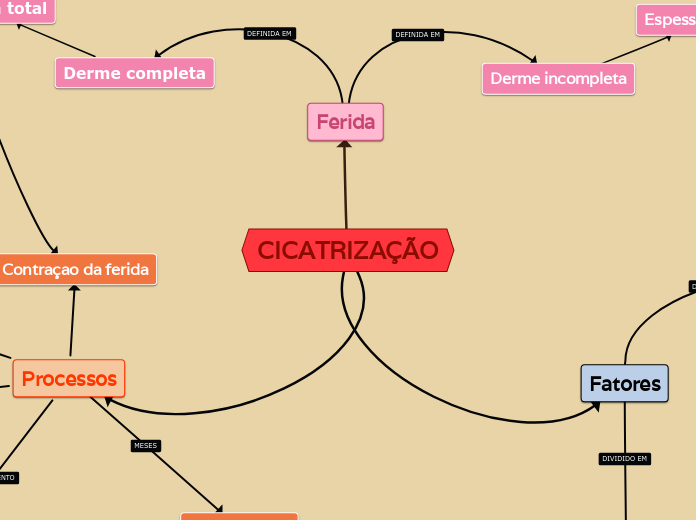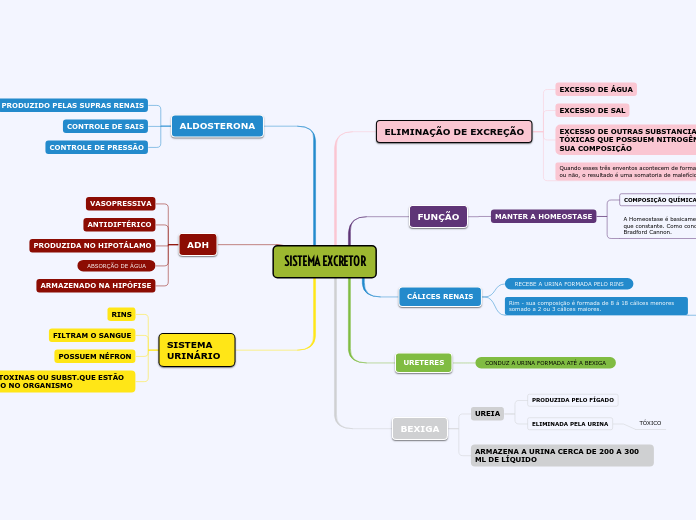Sistema Articular
To name your story, you have to think about the overall message and what you want your audience to understand from the story. Also, make it relevant and easy to remember.
Importante
O funcionamento harmônico entre a circulação, drenagem linfática, pressão intra-articular, depressão, inervação e temperatura é necessário para a homeostase articular.
The ending of a story is essential. We all know that if the ending is weak, what happened before loses its importance. So make it unpredictable, but fair. A resolved ending answers all the questions and ties up any loose threads from the plot.
Sem nervo
Avascular
Possui cartilagem articular
This is the closure section of the story.
See examples of possible outcomes below:
- all problems have been solved
- it's clear how each one of your characters ends up
- your main character is transformed by the challenge
Lisas, polidas e de cor esbranquiçadas, facilitando o deslizamento entre as superfícies ósseas
Try answering these questions to come up with a closure:
- Have all the problems been solved?
- Is there a clear picture of what happens with each character in the story?
- Has the challenge transformed your main character?
- How do the characters feel in the end?
Superficies que entram em contato
This is the moment when the main character surpasses the last obstacle and finally faces their greatest challenge.
The climax usually follows one of these patterns:
- realization
- resolution
- choice
Type in your answer.
Articulação
The middle of the story is where you add layers of complications that will lead to the end. Reveal more about the character's journey. Did their personality go through changes? How did they overcome the challenges? And as you build up the story’s central conflict, make it more personal to that character. Also, from the middle act, you have to lead into the final act.
Processo Fisiopatológicos
Each story has a main character and that character usually needs to solve a problem or challenge. The character's challenge is the one that creates tension throughout the story.
Cresce esporões, perda de cartilagem, redução do espaço articular.
Type in any other challenges which other characters in the story need to face.
Inflamação, sinais flogísticos, dor, calor, rubor, edema e perda de função das articulações sinoviais
In most stories, there are 3 challenges. The number 3 is a mystical number symbolizing completeness. Try to come up with interesting challenges with which your character needs to struggle.
See a few examples below:
- turns into a werewolf at night
- is sent back in time
Local de união entre 2 ou
mais componentes rígidos
Ossos, cartilagens ou partes do mesmo osso.
Articulação Sinovial
Superfície Articular
Cartilagem Articular
Capsula Articular
Cavidade Articular
Líquido sinovial
Grande quantidade de ácido hialurônico, o qual ajuda a lubrificar as superfícies das articulações.
Membrana Sinovial
Cápsula fibrosa
Capacidade de movimentação
Classificações
In the beginning of the story (or the exposition), you will need to introduce the setting and characters. You might also want to introduce the main conflict. This part of the story is important because it gives the reader necessary background information and maybe even a first insight into a character’s personality.
Sinoviais (Diartroses
Articulação sinovial e móvel
Cotovelo
Joelho
Ombro
Cartilaginosas (Anfiartroses)
The setting (time & place) of a story can change throughout the plot.
Articulações cartilaginosas e semimóveis
The weather is an important element in your story because it can highly influence the ambiance and the mood of the characters.
Vértebras
Decide if you want to include an element of nature in your story. For example, a rainbow can be a very nice choice for a happy ending. The mist in a story can represent mystery and secrets. A thunder can appear in the background at the moment when the 'bad guy' of the story makes its appearance, etc.
Ossos do quadril
Does your story include catastrophic weather? See a few suggestions below or add your own:
- hurricane, earthquake, storm, etc
Fibrosas (Sinartroses)
Characters are essential to a good story. Usually, the protagonist(s) is/are the most affected by the plot. Introduce a character by focusing on their actions, interests, and occupation, as the physical appearance doesn't make a difference in most cases.
Articulações fibrosas e imóveis.
Type in the name of your character.
Navicular
What is your character's main goal?
fight Evilfind lovedefeat his/her enemyrule the worldmake friendstime travelmake an awesome discoveryOther
Dentes
Which traits best describe the character's personality? Choose more if necessary:
introvertedloyalkindindependentquick-thinkingadventuresomeidealisticsweet-naturedcalmrisk-takercreativewittystrictfussyweirdclumsyharshaggressivecarelessclingingcowardlycrueldeceitfulimpulsiveOther
Suturas do crânio
Choose the type of your chacter:
Protagonist (main character)Antagonist (main character's opponent)Flat (stereotypical character)Round (his/ her personality develops throughout the story)Static (doesn't evolve as a person throughout the story)Dynamic (dramatical change in personality)Confidant (the main character trusts him/ her)Foil (contrasting character who enhances the personality of another character)Other










